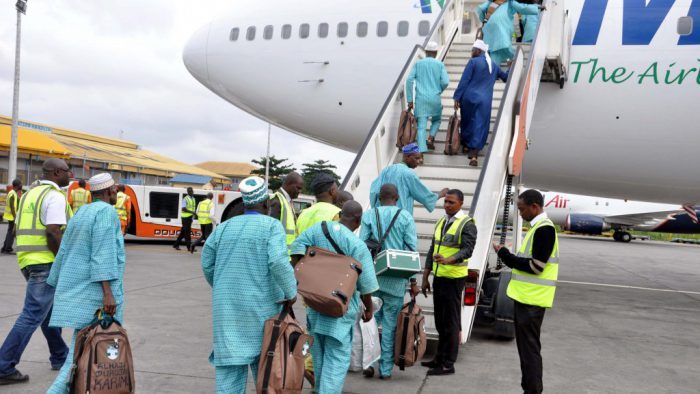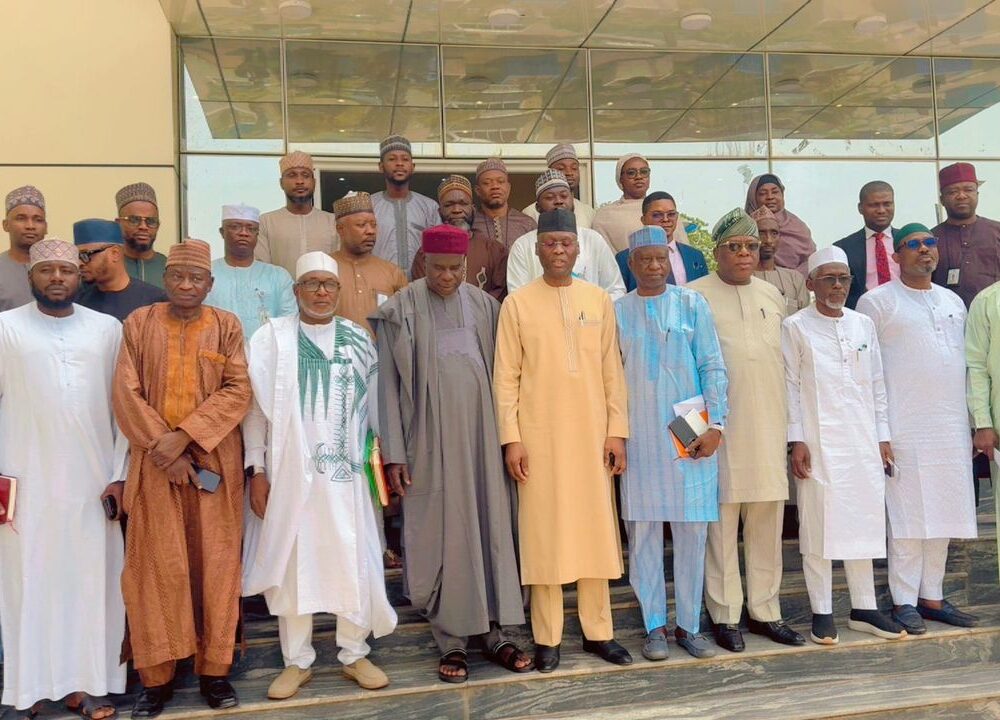Friday, December 16, 2022 (Jumadal Ula 22, 1444 AH)
In the Name of Allah, the Most Merciful, the Bestower of Mercy
All praise is due to Allah, the Lord of all creation—may He extol the Messenger in the highest company of Angels and send His peace and blessings upon him—likewise upon his family, Companions, and true followers.
Dear brothers and sisters! Please what do you know about the words “Confrontation” and “Dialogue”? Confrontation is a situation in which there is anger between people or groups who disagree because they have different opinions. And a “Dialogue” can be briefly define as a written composition in which two or more characters are represented as conversing; or a conversation between two or more persons; or an exchange of ideas and opinions; or a discussion between representatives of parties to a conflict that is aimed at resolution.
Respected brothers and sisters! In today’s article, we shall have a look at how we, as Muslims, should act between ourselves and towards people of other faiths and what our relationship with them should be. We will see that the Qur’an teaches us to accept and respect diversity. Accordingly, as faithful Muslims we should be concerned to engage in dialogue. By “engaging in dialogue” I mean making an effort to get to know people of other faiths and cultures and to interact, speak and work with them in a respectful and friendly manner.
We are reminded in the Qur’an that Allah Almighty has created us in different nations and groups on purpose. Allah Almighty says:
“O mankind! We have created you from a single (pair) of male and female, and made you into nations and tribes, so that you may know one another (not so that you may despise each other). Surely the most honoured of you in the sight of Allah is the one best in piety, righteousness, and reverence for Allah. Verily, Allah is All-Knowing, All-Aware.” [Qur’an, 49:13]
From the above verse we can see that Allah the Almighty with infinite wisdom has created different nations and groups with a purpose for them to learn and know about each other. It is us humans who create disorder and divide different nations and communities with our ideologies and our perception of right or wrong. However, to us Muslims, it should be clear that plurality was intended and that a difference of belief, opinion or race is not and must not be a destructive divider of people.
Nowadays people are divided even on the most trivial of things; therefore we need dialogue between these people to help them unite around values that bind them together rather than concentrating on their differences.
It is we human beings who insist on people having the same views and the same opinions; it is not the will of Allah Almighty. It is stated in the Qur’an that:
“If your Lord had so willed (and withheld from humankind free will), He would have made all humankind one single community (with the same faith, world view, and life-pattern), But (having free choice) they never cease to differ.” [Qur’an, 11: 118]
We should, therefore, reflect on and understand this verse in order to apply it in our everyday life.
We all have free will, and Allah Almighty has allowed us to choose our own paths and to make our own decisions.
These might be right or wrong, and we as Muslims have an obligation to try and help our fellow humans and try to explain things to them. However, we should not interfere in their lives nor think ourselves better than others.
Allah Almighty has created us with differences, with different beliefs and opinions; we should live out our faith to the best of our ability in piety but not force others to do the same. Faith comes from Allah Almighty and Him alone. Another verse in the Qur’an says:
“If your Lord had so willed, He could have made mankind one People: but they will not cease to differ. Except those on whom your Lord bestowed His Mercy: and for this did He create them.” [Qur’an, 11:118-119]
Another verse expresses the same idea that:
“For every one of you did We appoint a law and a way, and if Allah had pleased He would have made you (all) a single people, but that He might try you in what He gave you, therefore strive with one another to hasten to virtuous deeds.” [Qur’an, 5:48]
People belong to different social and ethnic groups, and this should not be used as a means to establish a sense of superiority over one another. Superiority can be measured not according to Allah-given characteristics such as race, colour, tribe, region, language or descent, but only according to the values that people gain through their own will, which the Noble Qur’an terms “at-Taqwah (fear and respect of Allah).” The Prophet (Peace be upon him) clearly underlines this fact in his Hadith:
“O people! Remember that your Lord is one, your father is one. An Arab is not superior over a non-Arab nor a non-Arab is superior over an Arab; also a white is not superior over a black nor a black is superior over a white except by at-Taqwah (fear and respect of Allah).” [Ahmad in Musnad]
Beloved servants of Allah! What we learn from these verses and Hadith is that Allah Almighty intended diversity and that it is not possible for everyone in the world to believe in the same religion.
Dear brothers and sisters! That is why dialogue is absolutely essential in our lives if we are to live in peace and harmony with others. We should learn to interact and work with each other as one human race, to have respect for all regardless of differences. Islam is a faith that accepts and embraces plurality. We can live out this aspect of our faith through dialogue with people of different faiths and cultures.
This Friday article was prepared and sent to you from my admission bed here in the National Hospital Abuja, Nigeria. Once again, I’m very grateful for your words of encouragements, your supports, concerns, prayers and Du’as. And please still your kind supports, Du’as and prayers for quick recovery, cure and Shifa are needed.
Thank you so much all, Wa Jazakumullah Khairan, ameen.
O Allah, guide us with those whom You have guided, grant us well-being among those You have granted well-being, be an ally to us along with those whom You are an ally to, and bless what You have bestowed upon us, and save us from the evil of what You have decreed. For verily You decree and none can decree over You. He whom You support can never be humiliated. Glory is to You, our Lord, You are Blessed and Exalted.
O Allah, we ask You for all that is good, in this world and in the Hereafter, what we know and what we do not know.
O Allah, we seek refuge with You from all evil, in this world and in the Hereafter, what we know and what we do not know.
O Allah, we ask You for the good that Your servant and Prophet has asked You for, and we seek refuge with You from the evil from which Your servant and Prophet sought refuge.
O Allah, we ask You for Paradise and for that which brings one closer to it, in word and deed, and we seek refuge in You from Hell and from that which brings one closer to it, in word and deed. And we ask You to make every decree that You decree concerning us good.
All praise is due to Allah, the Lord of all creation; may Allah extol the mention of our noble Prophet Muhammad in the highest company of Angels, bless him and give him peace and security―and his family, his Companions and all those who follow him correctly and sincerely until the establishment of the Hour.
Murtadha Muhammad Gusau is the Chief Imam of Nagazi-Uvete Jumu’ah and the late Alhaji Abdur-Rahman Okene’s Mosques, Okene, Kogi State, Nigeria. He can be reached via: gusauimam@gmail.com or +2348038289761.





